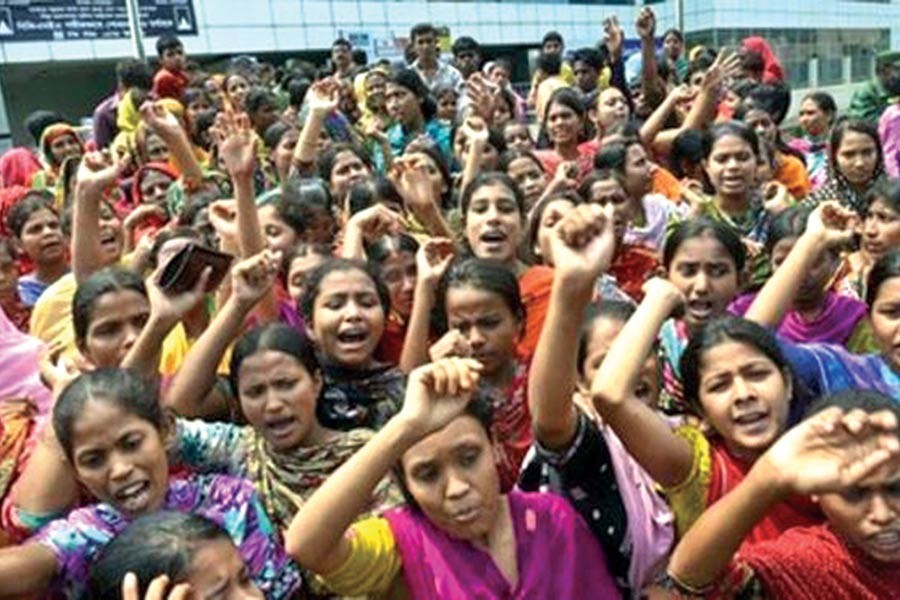A dialogue on 'Recent Wage Debates in the RMG Sector: What is it all about' held on Saturday in the city has tried to get into the bottom of the imbroglio the industry finds itself in. The Centre for Policy Dialogue (CPD) has found that intimidation of various types was largely to blame for the recent unrest by workers in the sector. Sure enough, the think tank has qualified the threat knowing full well that there are garments factories which not only live up to industrial compliance but even go beyond it to ensure green factory environment and reasonable wages for workers. Unfortunately, the majority do not fall in this category and have always tried to oppose any wage hike for workers. Some of them are used to taking recourse to even intrigues in order to stall any move by the government to constitute a wage board aimed at raising wages for workers.
All this can happen because garments workers have no formal bargaining capacity in the absence of trade unions. Foreign buyers have long pointed out the lack of this industrial prerequisite and even threatened with measures against the apparel industry here. Garments workers have been offered a minimum wage range at the entry level almost half the amount the workers demanded. But then the structure so devised saw that a few mid-level categories actually had their wages slashed. Why did the associations of garment owners take so much time to admit the lapse in the wage structure and readjust the same? Had it been promptly addressed, the workers' agitation would not have escalated in the first place. Admittedly, the wages offered are insufficient for workers to lead a minimum possible modest life. Yet they were compelled to accept it but gross anomalies left in it could not be acceptable to anyone.
In the dialogue initiated by the CPD, the commerce minister appeared to be quite aware of the situation. He requested the leaders of the Bangladesh Garment Manufacturers and Exporters Association (BGMEA) not to harass workers and file cases against innocent workers. Allegedly, some workers' leaders are now threatened with retrenchment and many have been charged with ransacking and vandalising factories. In the keynote Research director Khondaker Golam Moazzem presented at the dialogue, the observation was unambiguous. Mr Moazzem was critical that non-compliant garment factories ought to have been penalised; instead workers are now finding themselves at the receiving end.
The fact is that workers' contribution to the industry is recognised less than they deserve. If the allegation that 30 cases have been filed against 5,000 to 5,500 'unknown' people is true, there is no reason to think that the confrontation is over yet. The unknown people are not coming from outside of the factories. After all, garments workers have not the money power or muscle power to hire goons. In the interest of the RMG industry which is yet to recover from retrofitting of factories and other compliance issues, all should chart a reconciliatory course. The government should play a more pro-active mediatory role in order to bring peace and stability in the sector. Failing to do so will only relegate Bangladesh behind its emerging competitors.


